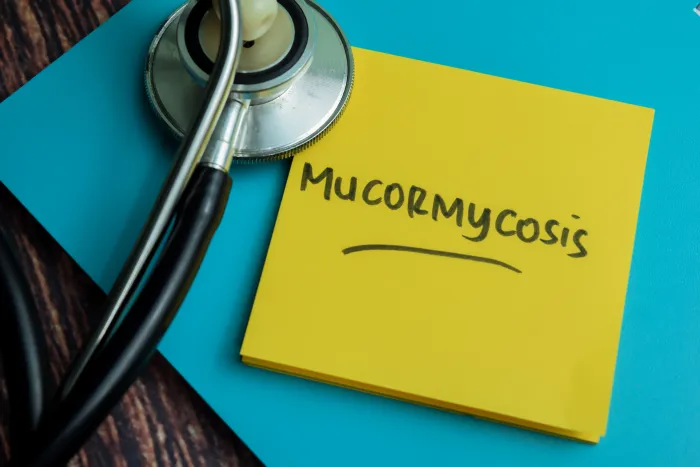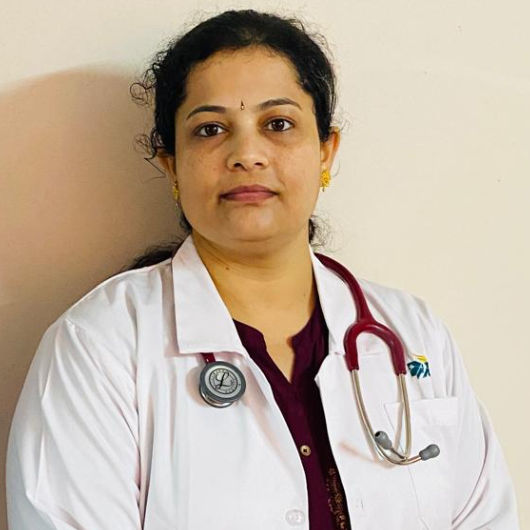Understanding Black Fungus (Mucormycosis)
Discover essential information about black fungus (mucormycosis), including its causes, symptoms, risk factors, treatment options, and prevention tips. Learn how to identify and manage this serious fungal infection effectively.

Written by Dr. Siri Nallapu
Reviewed by Dr. J T Hema Pratima MBBS, Fellowship in Diabetes Mellitus
Last updated on 13th Jan, 2026

Black Fungus, or Mucormycosis, has been making headlines, especially during the COVID-19 pandemic. If you’ve heard about it and are feeling worried, this article will help you understand what it is, why it happens, and how to stay safe.
What is Black Fungus (Mucormycosis)?
Mucormycosis is a rare but serious fungal infection caused by a group of moulds called mucormycetes. These moulds are commonly found in soil, decaying organic matter, and even in the air. While most people come into contact with them without any issues, those with weakened immune systems can develop severe infections.
The infection gets its name "Black Fungus" because it can cause blackening or discoloration of the affected tissues, especially in the nose and face.
Who is at Risk?
Not everyone exposed to these fungi gets infected. People with weakened immune systems are more likely to develop Mucormycosis. High-risk groups include:
- Diabetic patients, especially those with uncontrolled blood sugar levels.
- COVID-19 patients or those recovering, particularly if they were on steroids or oxygen support.
- Cancer patients undergoing chemotherapy.
- Organ transplant recipients on immunosuppressant drugs.
- People with long-term steroid use (which lowers immunity).
How Does Black Fungus Affect the Body?
Mucormycosis can affect different parts of the body, leading to various forms of infection:
1. Rhino-Orbital-Cerebral (Sinus & Brain):
- Starts in the sinuses and can spread to the eyes and brain.
- Symptoms: Nasal congestion, blackish discharge, facial pain, swelling, blurred vision, or even vision loss.
2. Pulmonary (Lungs):
- Common in people with severe lung conditions.
- Symptoms: Fever, cough, chest pain, difficulty breathing.
3. Cutaneous (Skin):
- Occurs through skin injuries (burns, cuts).
- Symptoms: Blisters, ulcers, blackened skin.
4. Gastrointestinal (Stomach & Intestines):
- Rare, but seen in malnourished individuals.
- Symptoms: Abdominal pain, nausea, vomiting blood.
What Causes Black Fungus?
The main causes include:
- Uncontrolled Diabetes: High sugar levels create a favourable environment for fungal growth.
- Steroid Overuse: Steroids suppress immunity, increasing infection risk.
- Poor Hygiene: Contaminated oxygen tubes, unclean masks, or unsterilized medical equipment.
- Exposure to Fungal Spores: Through soil, water, or decaying matter.
Consult Top Specialists
How Can You Prevent Black Fungus?
Prevention is key, especially for high-risk individuals. Here’s what you can do:
For Diabetic Patients:
- Monitor blood sugar levels regularly.
- Follow a controlled diet to avoid sugar spikes.
- Consult your doctor before taking steroids.
For COVID-19 Patients & Recoverers:
- Use clean, sterile oxygen equipment.
- Maintain oral and nasal hygiene (use saline gargles).
- Avoid self-medication with steroids.
General Prevention Tips:
- Wear masks when near soil or dust.
- Keep wounds clean and covered.
- Use antifungal prophylaxis if advised by a doctor.
When Should You See a Doctor?
If you or someone you know experiences:
- Persistent nasal blockage or blackish discharge.
- Swelling or pain around the eyes/nose.
- Sudden vision changes.
- Skin lesions that turn black.
- Seek medical help immediately. Early diagnosis and treatment improve recovery chances.
How is Black Fungus Treated?
Treatment involves:
- Antifungal Medications (like Amphotericin B).
- Surgical Removal of infected tissue (to stop spread).
- Managing Underlying Conditions (like controlling diabetes).
- The sooner treatment starts, the better the outcome.
Can Diet Help?
While no specific diet cures Mucormycosis, a healthy, balanced diet strengthens immunity:
- Eat more: Fresh fruits, vegetables, nuts, and proteins.
- Avoid: Excess sugar and processed foods.
- Stay hydrated.
Conclusion
Black Fungus is rare but dangerous for those with weak immunity. Awareness and early action can save lives. If you’re at risk, follow preventive measures and consult a doctor at the first sign of symptoms.
If you suspect any symptoms or need expert advice, book a consultation with Apollo24|7 for prompt diagnosis and care
Consult Top Specialists
Consult Top Specialists

Dr. Anand Misra
General Physician/ Internal Medicine Specialist
14 Years • MBBS, DNB
Mumbai
Apollo Hospitals CBD Belapur, Mumbai

Dr. Aakash Garg
Gastroenterology/gi Medicine Specialist
12 Years • MBBS, DNB (Medicine), DrNB (Gastroentrology).
Bilaspur
Apollo Hospitals Seepat Road, Bilaspur
(150+ Patients)

Dr. Ashmitha Padma
General Physician/ Internal Medicine Specialist
5 Years • MBBS, MD Internal Medicine
Bengaluru
Apollo Hospitals Jayanagar, Bengaluru

Dr. B Rachana
General Physician/ Internal Medicine Specialist
8 Years • MBBS, Fellowship in Diabetes, Fellowship in Applied Nutrition,CCEBDM(Diabetes)
Bengaluru
Apollo Clinic, JP nagar, Bengaluru

Dr. Pallavi Patekar
General Physician/ Internal Medicine Specialist
11 Years • MBBS, DNB ( Gnternal Medicine), FCCCM Critical Care
Mumbai
Apollo Hospitals CBD Belapur, Mumbai
(25+ Patients)
Consult Top Specialists

Dr. Anand Misra
General Physician/ Internal Medicine Specialist
14 Years • MBBS, DNB
Mumbai
Apollo Hospitals CBD Belapur, Mumbai

Dr. Aakash Garg
Gastroenterology/gi Medicine Specialist
12 Years • MBBS, DNB (Medicine), DrNB (Gastroentrology).
Bilaspur
Apollo Hospitals Seepat Road, Bilaspur
(150+ Patients)

Dr. Ashmitha Padma
General Physician/ Internal Medicine Specialist
5 Years • MBBS, MD Internal Medicine
Bengaluru
Apollo Hospitals Jayanagar, Bengaluru

Dr. B Rachana
General Physician/ Internal Medicine Specialist
8 Years • MBBS, Fellowship in Diabetes, Fellowship in Applied Nutrition,CCEBDM(Diabetes)
Bengaluru
Apollo Clinic, JP nagar, Bengaluru

Dr. Pallavi Patekar
General Physician/ Internal Medicine Specialist
11 Years • MBBS, DNB ( Gnternal Medicine), FCCCM Critical Care
Mumbai
Apollo Hospitals CBD Belapur, Mumbai
(25+ Patients)